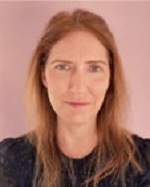ESTRO 2023 RTT Track Debate
“This house believes that there is no role for the plan libraries approach in the era of real-time adaptive radiotherapy”
The ESTRO debates are known for their entertaining and lively discussions of key topics in modern radiotherapy, and this year the radiation therapist (RTT) debate at ESTRO23 did not disappoint.
Lykke Kildegård Johansen from Rigshospitalet, Copenhagen, Denmark, and Andrew Le from Northern Sydney Cancer Centre, Sydney, Australia, deliberated the role of plan libraries in the era of real-time adaptive radiotherapy (ART).
Both Lykke and Andrew come from departments with a wealth of experience in the practice of ART using plan libraries, and more recently both perform re-optimisation online, so these similarities made for an evenly matched duel. Unsurprisingly, both RTTs agreed that online ART facilitates the creation of personalised treatment plans that could be tailored to address tumour response and/or organ motion during a course of treatment. Both debaters also acknowledged that online ART had the potential to improve outcomes for patients with rapidly changing tumours or complex anatomy; however, this was the extent of their agreement.
Lykke argued in favour of the use of daily online re-optimisation, likening the plan libraries approach to an archaic dinosaur of radiotherapy. In doing so, she introduced us to “Mr Hansen”, a 68-year-old male with T2a bladder cancer who was unfit for surgery. Luckily (for her argument), Mr Hansen was more than happy to lie on the radiotherapy treatment couch for the 20 minutes that was required each day for Lykke and her colleagues to image, delineate, optimise, calculate, and deliver the perfect plan for him every day. Lykke was not only armed with personal experience from her own hospital, but also highlighted key publications that had demonstrated the feasibility of online re-optimisation and stressed the limitations when RTTs were forced to rely on unsuitable plan libraries.
As compelling as Lykke’s arguments were, this debate was by no means one-sided. Andrew opened his support for plan libraries by referring to their proven success in several large-scale, international, phase II randomised trials. Hard to argue with hard evidence! The significant amount of offline work that is required to prepare multiple plans during the creation of the patient’s library is an easy criticism of this “mesozoic” approach. Andrew was quick to rebut this, as he reminded us that we now have automation at our fingertips and the laboriousness of these tasks has become as outdated as the argument itself. Previous ESTRO RTT debates have tackled the technical uncertainties of online (and real-time) re-optimisation, and Andrew took full advantage of this, reminding us of these challenges. Safe implementation of real-time ART requires the use of real-time imaging systems, advanced planning algorithms, and robust quality assurance protocols, all of which must be available at the treatment machine in a timely fashion. This high-stakes approach can create a tense environment and, as Andrew said, often required “half the hospital” to be present for each treatment. Finally, money talks, and we were asked to ponder the capital costs associated with investing in the technology required to make real-time ART a reality.
As is common in ESTRO debates, the discussion was not confined to the podium, and several members of the multidisciplinary audience challenged arguments and expanded the dialogue of our speakers. Topics that resonated most with the crowd were centred on the practicalities of daily practice and of introducing ART when resource capacity was poor.
Of course, a debate on the topic of ART would not be complete without recognition of the critical role that RTTs play in its implementation. In the spirit of international relations, both Andrew and Lykke called for increased education on RTTs, which would enhance professional autonomy and improve quality care for our patients, irrespective of which ART approach you take.

Elizabeth Forde
Assistant Professor
Trinity College Dublin
Dublin, Ireland